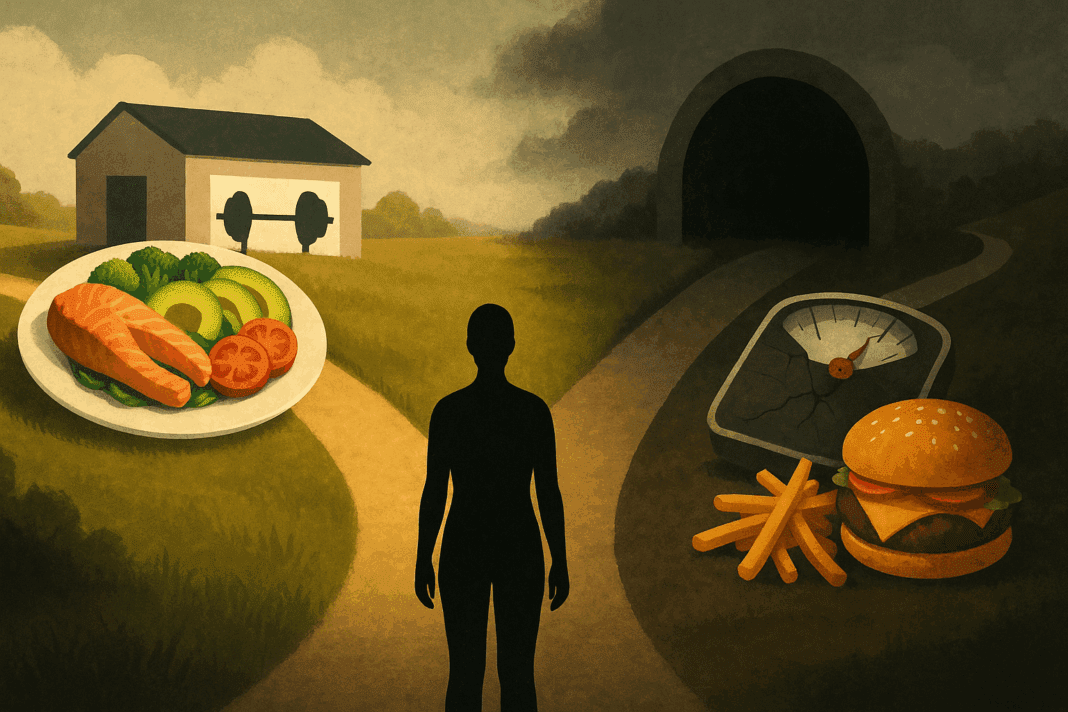Understanding the Popular Belief: Can You Really Lose Weight by Not Eating?
The notion that simply not eating will lead to weight loss is a deeply rooted belief in many diet and wellness conversations. It’s easy to understand why. On the surface, weight loss seems like simple math: burn more calories than you consume, and the pounds should disappear. But human metabolism is anything but simplistic, and the idea that skipping meals or starving the body can consistently lead to healthy, sustainable weight loss is far more complex than it appears. Many people wonder, “does not eating make you lose weight,” and while there may be some truth to the idea that cutting calories can produce initial weight loss, the reality is fraught with medical nuances.
You may also like: Expert-Backed Weight Loss Tips for a Healthier Lifestyle: What You Need to Know for Long-Term Weight Control and Wellness
From crash diets to intermittent fasting and full-blown starvation, the conversation around not eating as a weight loss strategy spans a wide range of interpretations. But can not eating help you lose weight in a way that benefits your overall health? Or does it merely provide a temporary illusion of progress, while setting the stage for long-term harm? The science behind the body’s metabolic response to starvation reveals much about how weight loss and fat burning actually work. Understanding the mechanisms involved is crucial before one makes the risky decision to pursue weight loss by skipping meals entirely.
Moreover, we must also differentiate between weight loss and fat loss. It’s possible to see a drop on the scale from not eating, but does not eating burn fat—or are we simply losing water weight and muscle mass in the process? These distinctions matter, particularly for those aiming for healthier bodies rather than just smaller ones. In this article, we’ll examine whether not eating helps you lose weight or burn fat, what science says about these methods, and why skipping meals might ultimately backfire on both metabolic health and long-term weight outcomes.
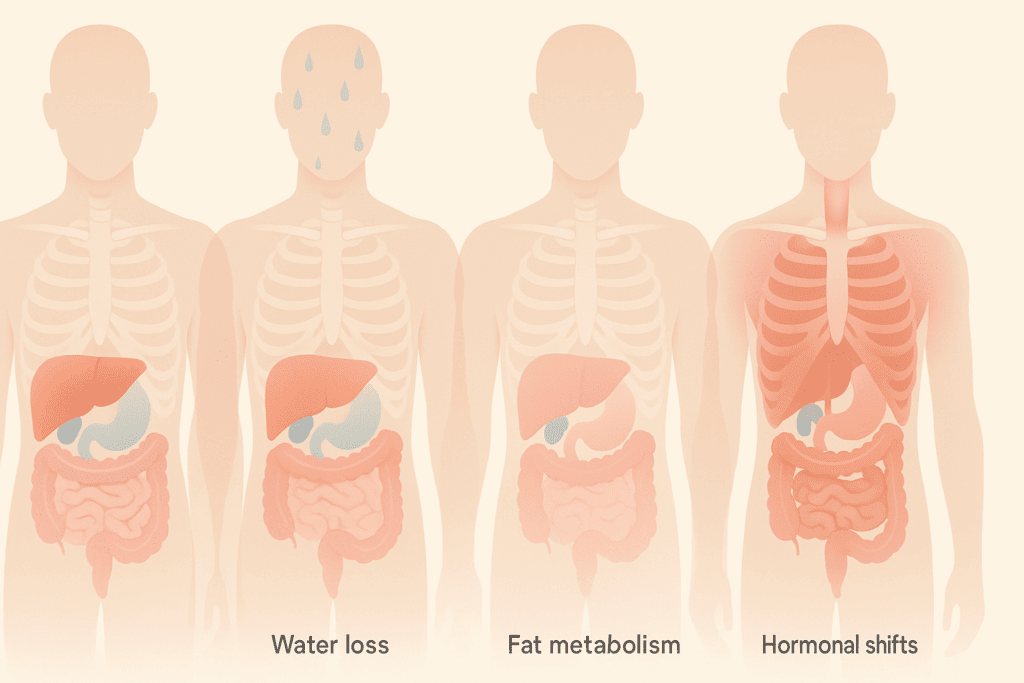
What Happens to Your Body When You Stop Eating
When you stop eating—or dramatically reduce your caloric intake—the body undergoes a cascade of biological responses aimed at preserving energy and protecting essential systems. In the first 12 to 24 hours without food, your body uses stored glycogen in the liver and muscles for energy. Glycogen binds with water, so its breakdown leads to rapid water loss. This is why many people notice immediate changes on the scale after fasting, which may lead to the misleading impression that not eating is an effective fat loss strategy.
However, this early weight loss is neither sustainable nor primarily due to fat loss. As glycogen depletes, the body turns to other sources of fuel, including fat and muscle tissue. This shift leads some to ask, “will you lose fat by not eating?” While some fat is burned during extended periods without food, the body also catabolizes muscle for amino acids needed to sustain basic functions, especially if protein intake is insufficient. The loss of lean body mass can slow metabolism, making it harder to lose weight over time.
Eventually, prolonged fasting triggers metabolic adaptation—a slowing of the resting metabolic rate to conserve energy. This state, known as “starvation mode,” may explain why some individuals actually stop losing weight despite eating very little. In this context, it becomes evident that although you might initially lose weight by not eating, the longer-term consequences could include reduced muscle mass, hormonal imbalances, and a plateau in fat loss.
Furthermore, not eating can create hormonal chaos. Ghrelin, the “hunger hormone,” rises during fasting, making it harder to control cravings later. Leptin, the hormone that signals satiety, often drops, which impairs the body’s ability to regulate appetite appropriately. These shifts create the perfect storm for overeating once food becomes available again. So while people may hope that not eating will help them lose weight quickly, it often results in a cycle of rebound weight gain that undermines long-term goals.
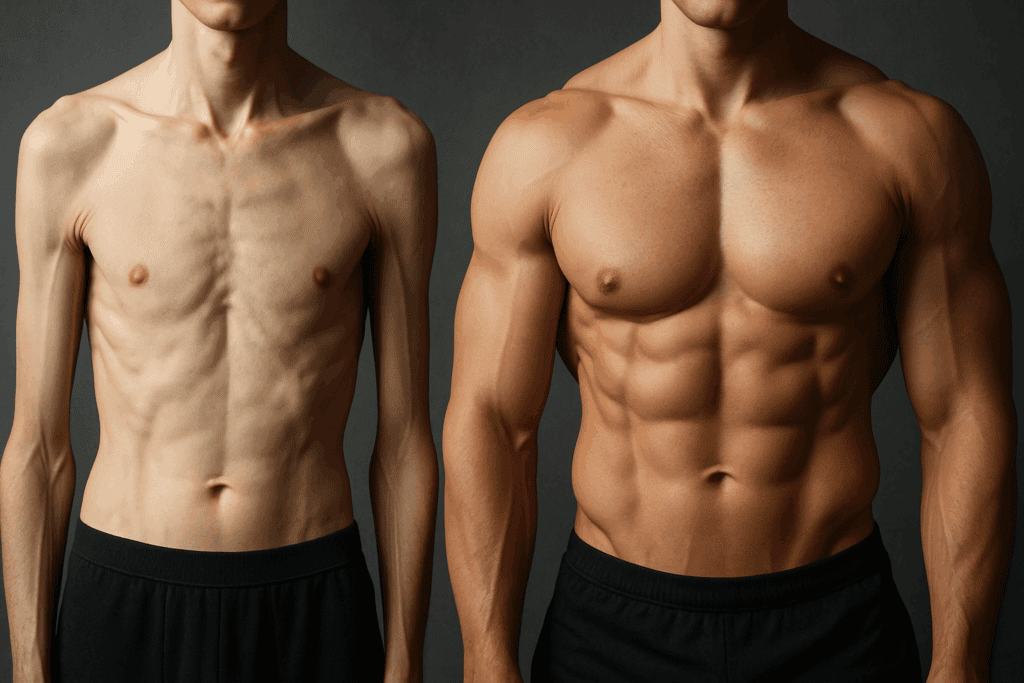
Debunking the Myth: Does Not Eating Make You Lose Weight Fast?
The appeal of quick weight loss drives many to try extreme diets or skip meals entirely, especially when faced with high-pressure events or body image concerns. People often search online for answers to questions like, “does not eating make you lose weight quick?” The short answer is yes—it can appear that way on the scale at first. However, this weight loss is typically transient and not the result of actual fat reduction.
Weight lost from not eating for short periods is often a mix of water, glycogen, and lean tissue. Fat burning may occur in later stages of caloric restriction, but the body typically resists giving up fat stores, especially when it senses prolonged starvation. In this survival-oriented response, metabolism slows, and the body holds onto fat while breaking down muscle for energy—a highly inefficient and ultimately damaging process for long-term weight management.
Moreover, the notion that rapid weight loss is beneficial or sustainable is unsupported by science. Studies have consistently shown that rapid weight loss through severe calorie restriction leads to higher rates of weight regain. The psychological toll of constant hunger, combined with the body’s natural drive to restore lost weight, often results in binge-eating episodes once the fast ends. This leads many to ask, “do you gain weight by not eating?” Unfortunately, yes—especially if the restriction phase leads to metabolic slowdown and eventual overeating.
In addition, nutrient deficiencies can develop quickly when people go without food. Essential vitamins and minerals required for energy metabolism, immune function, and hormonal balance are often lacking in starvation diets. The body needs fuel not just to function, but to thrive. Therefore, while not eating may appear to help you lose weight quickly, it often compromises your health, your metabolism, and your ability to maintain that weight loss over time.
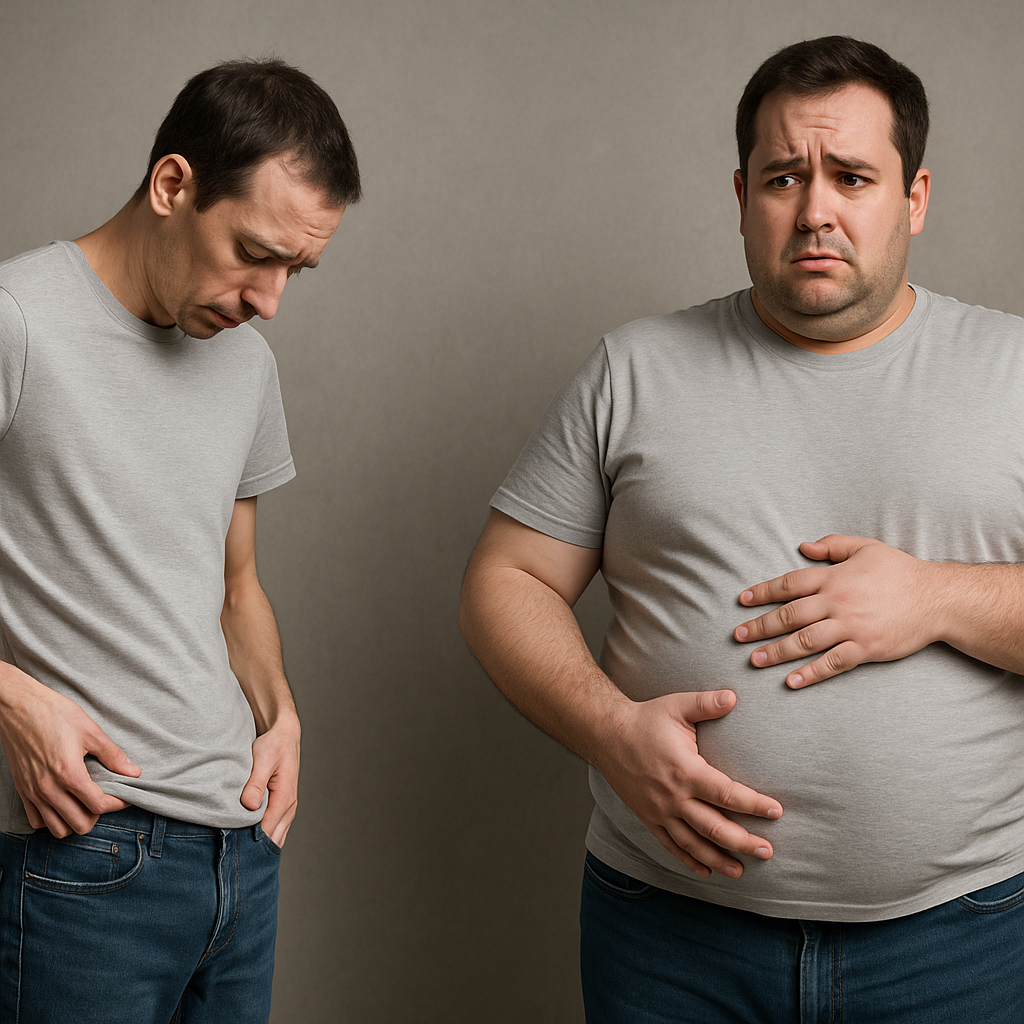
Will You Lose Weight by Not Eating or Gain Weight Over Time?
This is one of the most common and confusing questions in diet culture: “will you lose weight by not eating, or does not eating make you gain weight in the long run?” The paradox arises from the body’s ability to adapt to energy shortages and protect itself from perceived famine. In the early stages, weight loss may occur, but the longer someone continues to deprive themselves of calories, the more likely the body is to shift into a fat-conserving, muscle-burning mode.
This phenomenon has led researchers and clinicians to observe that some individuals—especially those with a history of dieting or disordered eating—actually gain fat mass over time after periods of extreme calorie restriction. In this case, the answer to “can you gain weight by not eating” becomes more complex than it seems. Yes, not eating can make you gain weight eventually if your metabolic rate slows dramatically and you return to normal eating with reduced muscle mass and lowered caloric needs.
The post-restriction phase is where this gain typically occurs. Once normal eating resumes, the body aggressively restores fat stores while rebuilding glycogen and water weight. This rapid regain often exceeds the original weight, making individuals feel like their efforts were in vain. That’s why it’s not uncommon to hear people ask, “can u gain weight by not eating?”—a question rooted in frustration and confusion after failed dieting attempts.
In addition to the biological response, psychological rebound is common. Food becomes more emotionally charged, and cravings increase dramatically after deprivation. This creates a dangerous relationship with food, where cycles of restriction and overeating replace balance and health. Long-term, such patterns may damage not only metabolic health but also mental well-being, emphasizing the need for evidence-based and sustainable approaches to weight management.
Does Not Eating Help You Lose Fat or Just Create an Illusion?
Many individuals hoping to lose body fat wonder, “can you lose fat by not eating?” or “will not eating help me lose fat specifically?” The truth is that fat loss is only one potential outcome of calorie restriction, and not the most immediate one. When caloric intake is drastically reduced, the body prioritizes short-term survival—not long-term aesthetics. In that state, it turns to multiple fuel sources, including glycogen, lean tissue, and only eventually fat.
What this means is that not eating doesn’t selectively burn fat. In fact, you may burn muscle first unless the body is in a metabolically efficient state—such as during a well-designed intermittent fasting plan that includes adequate nutrition during eating windows. In contrast, prolonged, unstructured food deprivation often does more harm than good, reducing muscle tone and weakening essential organs. For those who believe that “does not eating burn fat” or “can not eating help you lose weight effectively,” it’s vital to consider the bigger metabolic picture.
The loss of lean mass not only affects strength and posture—it decreases basal metabolic rate, which is the number of calories your body burns at rest. With a lower metabolic rate, weight loss becomes increasingly difficult, and fat accumulation may follow even with relatively modest food intake. Thus, while not eating may lead to some fat loss initially, it is rarely efficient and often unsustainable.
Additionally, fat loss should not come at the cost of metabolic or psychological health. A holistic fat loss strategy includes balanced meals, nutrient timing, resistance training, and appropriate rest. These components help the body preserve muscle while creating a calorie deficit in a way that supports hormonal balance and energy regulation. So while the idea that “will not eating help lose weight or fat” may seem logical, science tells us that there are healthier and more effective ways to burn fat.
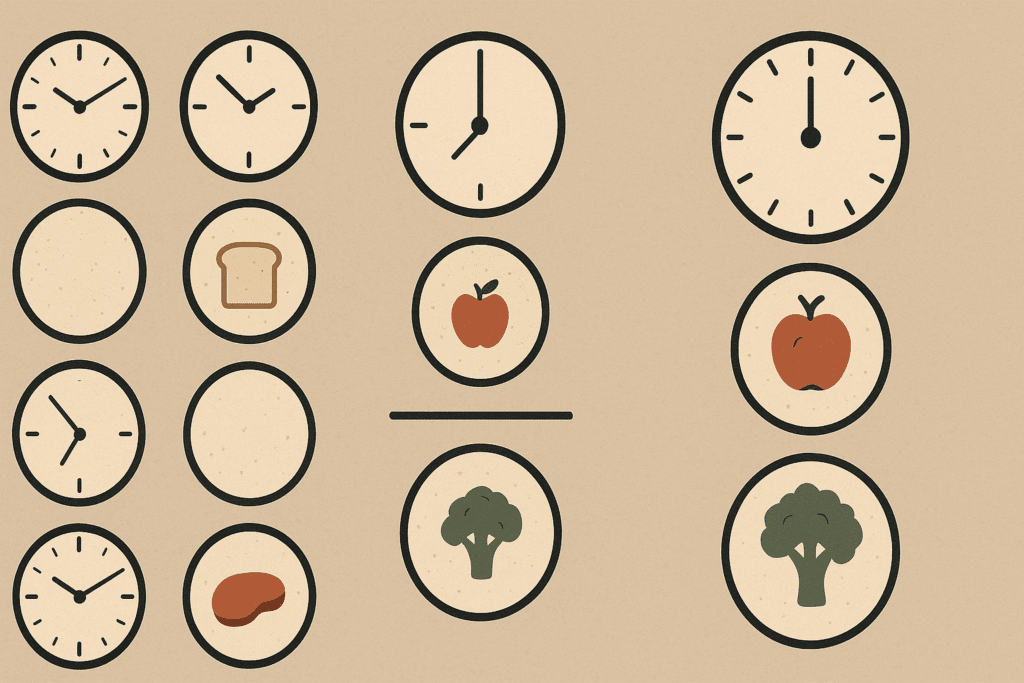
What Science Says About Skipping Meals, Fasting, and Not Eating Much
The popularity of intermittent fasting has created renewed interest in meal-skipping and caloric restriction. However, it’s important to distinguish between structured fasting protocols and unregulated, prolonged periods of not eating. Clinical research shows that time-restricted eating may offer benefits for weight loss and metabolic health when done strategically. But this does not mean that simply skipping meals or starving the body is a viable or healthy solution.
Questions like “can you lose weight from not eating much?” or “will not eating burn fat efficiently?” must be answered with caution. The evidence supports modest caloric reduction combined with nutrient-dense eating rather than complete meal omission. In fact, the National Institute on Aging and other leading research bodies advise against long-term caloric deprivation due to the potential risks to organ health, hormonal balance, and emotional well-being.
Research also shows that people who chronically under-eat may experience reductions in thyroid hormone activity, reproductive hormone production, and immune function. These changes can make it more difficult to maintain a healthy weight, let alone lose fat. For those who have tried to not eat for a day to lose weight, the data suggests that while this may yield quick water weight reduction, it does not result in meaningful or lasting fat loss without accompanying lifestyle changes.
Moreover, studies on starvation diets reveal a high correlation with binge eating disorder, particularly in populations susceptible to body image pressures. The pendulum of deprivation and overcompensation is difficult to escape and often worsens over time. Therefore, while structured calorie control with professional guidance may help with weight management, extreme restriction or skipping meals entirely can derail long-term progress and health.
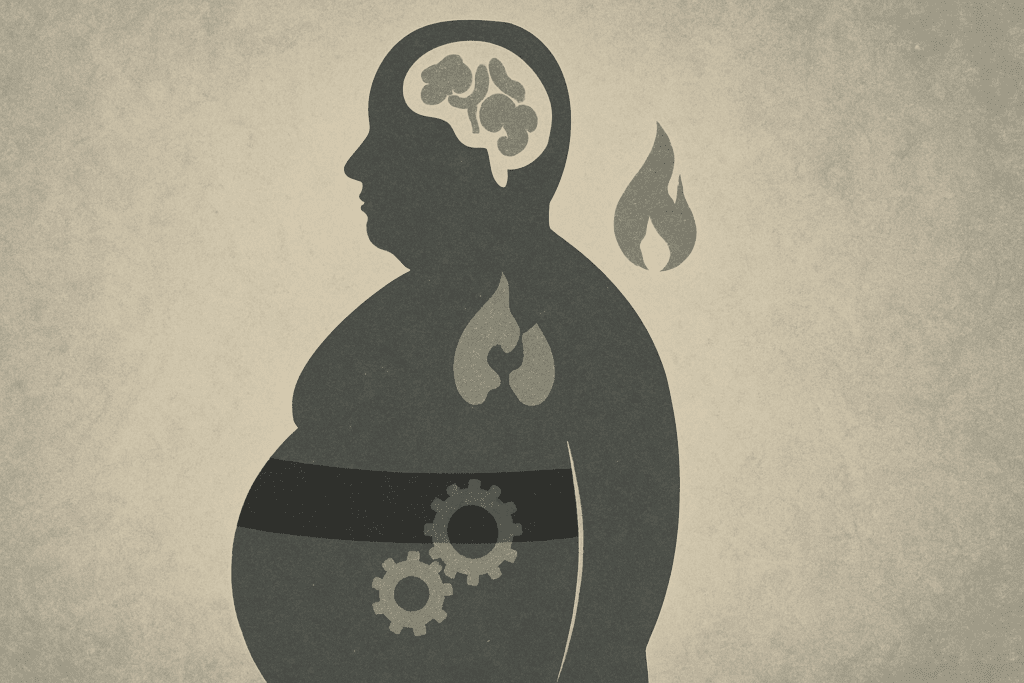
Rebound Weight Gain, Hormonal Damage, and Long-Term Health Risks
Although many hope that not eating will help them slim down quickly, the unintended consequences often go unacknowledged. The most common and concerning outcome is rebound weight gain, which is nearly inevitable following periods of significant caloric deprivation. This gain is typically due to a combination of slowed metabolism, lost muscle mass, and heightened hunger hormones.
When people ask, “does not eating make you gain weight later?” they’re often referring to this phenomenon. The body, having been deprived, overcompensates by increasing hunger cues and fat storage mechanisms when normal eating resumes. This effect is well-documented in scientific literature and is one reason why so many dieters end up heavier after repeated cycles of extreme dieting than they were at the start.
Additionally, not eating much—or skipping meals regularly—can lead to hormonal disruptions that affect mood, cognitive function, sleep, and libido. In women, it may disrupt menstrual cycles; in men, it may decrease testosterone levels. Cortisol, the stress hormone, also tends to increase during starvation states, which can further promote abdominal fat storage and impair immune function.
The long-term risks go beyond weight. Chronic under-eating can lead to deficiencies in key nutrients like vitamin B12, iron, magnesium, and essential fatty acids, resulting in fatigue, brain fog, depression, and even irreversible neurological damage in severe cases. These realities underscore the need to move beyond questions like “can not eating help you lose weight” and instead ask, “what is the healthiest way to achieve lasting weight and fat loss?”
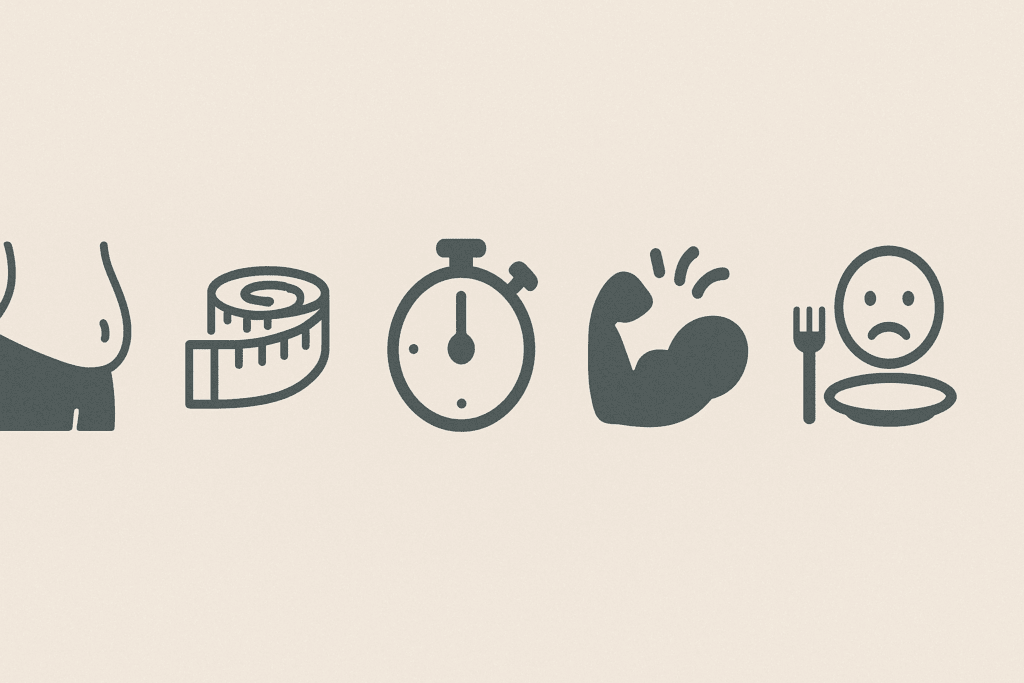
Frequently Asked Questions (FAQ): Will Not Eating Help You Lose Weight or Burn Fat?
1. Can not eating for short periods actually help you lose belly fat specifically?
While it’s common to wonder if you can lose belly fat by not eating, the body does not target fat loss from specific areas based on meal frequency. When caloric intake drops, your body draws energy from overall fat stores—but genetics primarily determine where fat is stored or burned first. So while not eating may initially cause weight loss, it doesn’t guarantee fat will come from the abdominal area. In fact, abdominal fat tends to be more metabolically resistant and may persist despite overall weight loss. While some claim that fasting burns belly fat, the reality is that a structured approach combining diet, exercise, and stress reduction is more effective than relying on the idea that does not eating burn fat in one specific area.
2. Can you gain weight by not eating if your metabolism slows too much?
Yes, under certain circumstances, the idea that “can u gain weight by not eating” becomes a legitimate concern. When you severely restrict calories, the body enters a state of metabolic adaptation, reducing the number of calories it burns at rest to conserve energy. This means that once normal eating resumes, your slowed metabolism may not be equipped to handle the caloric intake, even if it’s not excessive. Additionally, hormonal shifts such as increased cortisol and reduced thyroid function can promote fat storage, particularly in the abdomen. So in the long run, does not eating make you gain weight? In some individuals, especially after repeated crash diets, it absolutely can.
3. How does not eating affect athletic performance and muscle preservation?
Athletes and active individuals face significant risks when adopting fasting or extreme calorie restriction. Without adequate fuel, the body may break down muscle tissue to supply energy, particularly if protein intake is low or resistance training is not included. This catabolism undermines muscle mass, which is vital not only for strength and performance but also for maintaining a healthy metabolism. Athletes trying to determine if can you lose weight from not eating much should understand that muscle loss can offset the benefits of any fat loss. The trade-off is rarely worth it, and sustainable body composition improvements come from fueling correctly and training strategically, not starvation.
4. Will not eating help lose weight faster than a calorie-controlled diet?
The allure of fast results makes many believe that will not eating help lose weight more quickly than traditional dieting. Initially, the scale may drop quickly due to water loss and glycogen depletion. However, a calorie-controlled diet rich in nutrients preserves muscle and supports fat loss in a more sustainable way. With not eating, the rapid drop is often followed by a rebound—both in weight and cravings—making it more difficult to sustain any progress. So while you may lose weight by not eating in the short term, the long-term effectiveness of slow, steady dieting is superior for both body composition and overall health.
5. Does not eating for one day really lead to meaningful fat loss?
A common trend in wellness spaces is the belief that if you not eat for a day, lose weight automatically. While it’s true that fasting for 24 hours can create a caloric deficit, the weight loss seen is largely from fluid shifts, not fat. Fat loss occurs when there is a sustained deficit over days or weeks. Moreover, skipping food for an entire day may trigger overeating the next day due to heightened hunger hormones like ghrelin. So does not eating lose weight meaningfully over a single day? Not in terms of fat loss—it’s more of a temporary fluctuation than a long-term transformation.
6. Can you burn fat by not eating if you’re already lean?
For individuals with low body fat, not eating to burn additional fat can be harmful. When body fat is already minimal, the body prioritizes preserving remaining fat stores and turns to muscle for fuel, making “can you burn fat by not eating” a less relevant question. The risk of muscle degradation, hormonal imbalances, and nutrient deficiencies increases as fat stores diminish. In these cases, targeted nutrition strategies and exercise are more appropriate than relying on fasting alone. Rather than asking does not eating help you lose weight, lean individuals should focus on methods that support metabolic health and preserve lean mass.
7. Why do some people gain weight after fasting or restrictive diets?
This phenomenon, often referred to as “post-diet rebound,” answers the frequent question, “do you gain weight by not eating?” Yes—especially when the diet is extreme or poorly managed. When food intake is dramatically reduced, metabolic rate drops, and hunger hormones increase. Once the restriction ends, the body may seek to restore energy balance by prompting overeating and storing fat more readily. This is compounded by psychological deprivation, which can lead to binge behavior. Over time, repeated cycles of restriction and refeeding may result in more weight gain than before the diet started—making the question of “does not eating make you gain weight” all the more important to address with evidence-based strategies.
8. Can not eating help you lose weight if you’re dealing with emotional eating?
Emotional eating presents a unique challenge because it’s driven more by psychological cues than physical hunger. In such cases, the assumption that “can not eating help you lose weight” might work is misleading. Restricting food may exacerbate emotional triggers, increasing the likelihood of rebound binge eating. Instead, emotional eaters benefit more from structured meals, mindful eating practices, and therapy that addresses underlying psychological patterns. Skipping meals often intensifies stress and guilt, undermining both emotional and physical well-being. Sustainable weight loss in this context requires emotional regulation skills more than caloric abstention.
9. Will not eating burn fat if you exercise on an empty stomach?
Exercising in a fasted state, often called “fasted cardio,” has gained popularity based on the idea that will not eating burn fat more efficiently. While some studies show that low-intensity fasted exercise may increase fat oxidation during the workout, this doesn’t necessarily translate to greater fat loss over time. The body may compensate later by increasing appetite or reducing calorie expenditure. Additionally, high-intensity workouts done without fuel may reduce performance and muscle preservation. So although can you lose fat by not eating before workouts is technically possible, the practical benefits are often overstated and should be weighed against potential downsides.
10. What long-term health risks are associated with chronic under-eating?
Long-term caloric restriction beyond therapeutic fasting can lead to a wide array of complications. These include hormonal dysregulation, decreased bone density, infertility, and compromised immune function. Chronic under-eating also affects mental health, increasing the risk of depression, anxiety, and cognitive decline. For individuals wondering does not eating make you lose weight safely over time, the answer becomes increasingly complex as these health risks accumulate. Sustainable weight management requires a balanced approach that nourishes the body, rather than depleting it. Ultimately, any benefit associated with will you lose weight by not eating must be weighed against the physiological cost of prolonged restriction.
The Bottom Line: Will Not Eating Help You Lose Weight or Burn Fat Safely?
In theory, reducing food intake can lead to weight loss—but not all weight loss is equal, and not all strategies are sustainable or safe. While it’s true that you can lose weight by not eating, what you’re losing isn’t necessarily fat. Often, it’s water and muscle, and when your body adapts by slowing down your metabolism, any perceived benefit is undermined in the long run.
For those wondering if not eating helps you lose weight or burn fat, the evidence suggests that temporary deprivation might provide short-lived results but carries significant risk. From hormonal imbalances and slowed metabolism to rebound weight gain and psychological distress, the costs often outweigh the benefits. You may see the number on the scale drop, but if it comes at the expense of muscle mass and organ function, is it truly worth it?
A better approach is to support your body with balanced nutrition, moderate caloric control, and regular physical activity. Rather than asking, “can you burn fat by not eating,” a more productive question is, “how can I nourish my body in a way that promotes lasting fat loss and vibrant health?” That shift in mindset changes everything.
Ultimately, will not eating help you lose weight? Possibly—but not in the way that leads to sustainable results or improved health. Fat loss that lasts comes from metabolic support, not starvation. And in the end, it’s not about eating less—it’s about eating smarter.
Further Reading:
Intermittent fasting: Fad or valid weight-loss solution?
Why Starving Yourself Isn’t a Good Idea for Weight Loss
What Happens If You Don’t Eat for a Full Day? (24-hour fast)


